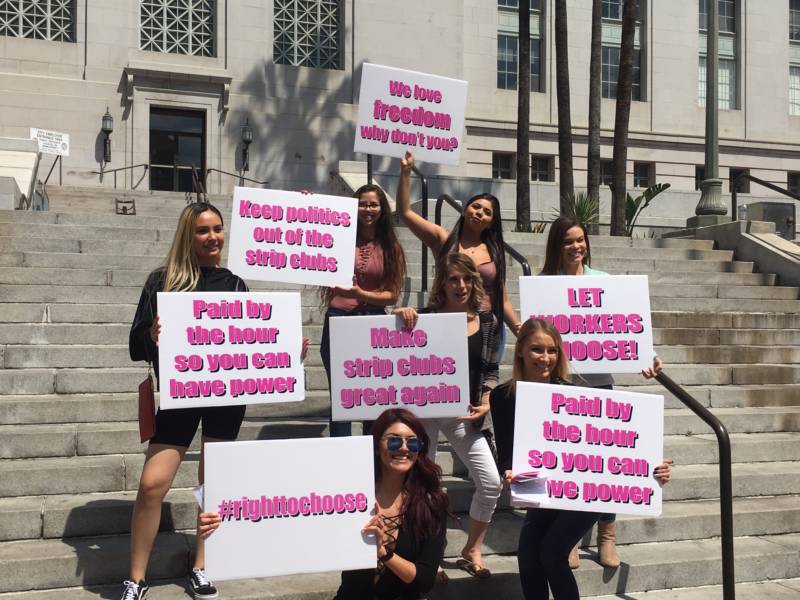Tensions over employment status in California were on display in downtown Los Angeles Tuesday as two groups of strippers debated whether they would be better off as employees or independent contractors.
Hoisting signs that said, "Keep politics out of strip clubs," and shouting "1099," a reference to the tax documents used by contractors, strippers with the Independent Entertainer Coalition protested (with clothes on) in front of Los Angeles City Hall, demanding to continue working as independent contractors. Doing so, they said, would give them the freedom to work for as many employers as they want to and have more control over their schedules.
At issue is the state Supreme Court’s 2018 Dynamex decision, which makes it more difficult for California companies to classify workers as independent contractors.
Megan Fowler, who dances at Déjà Vu strip club in Bakersfield, said that since her employment status changed from contractor to employee, the company that owns the club has slammed her with new fees that they hadn’t previously explained.
"The club is now in full and complete control of us, and anything they want, they get," Fowler said.


